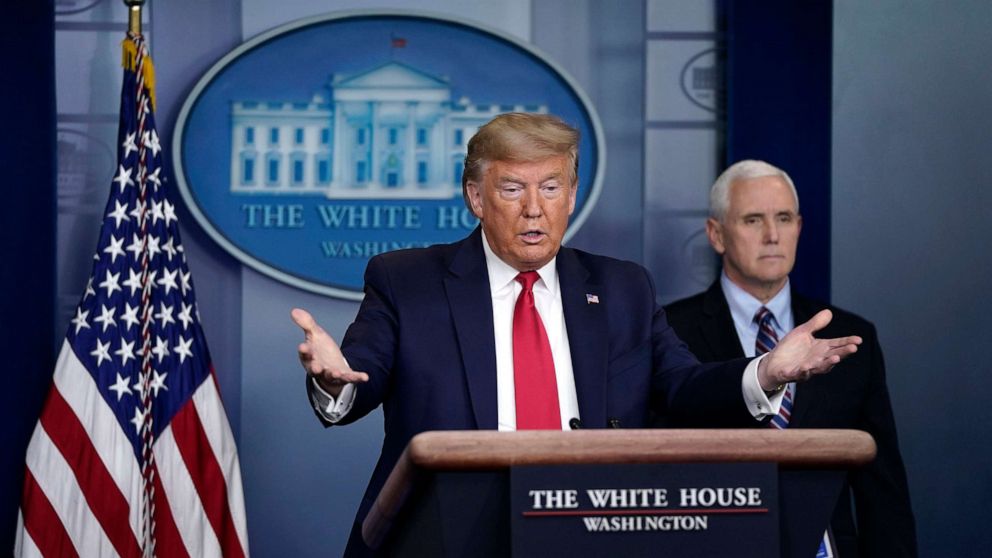Coronavirus government response updates: Trump envisions county-by-county risk assessments in new guidelines
The federal government has been rolling out its response to the coronavirus crisis, trying to slow the spread and prop up the economy, which has taken a severe hit, as shown by historic jobless claims numbers out Thursday.
On the eve of the dire report, at a White House coronavirus task force briefing, President Donald Trump said that "large sections of our country" can probably "go back to normal" much sooner than others, while the nation's leading expert on pandemics, Dr. Anthony Fauci, warned that "the virus makes the timeline."

In an apparent effort to combat the growing economic fallout, the Senate cleared a massive relief package by unanimous vote late Wednesday. It moves on to the House for a vote set for Friday.
Trump: 'We gotta go back to work'
President Trump opened the daily White House briefing on how the government is handling the coronavirus crisis by saying, "We will vanquish this virus."
He spoke once again about how Americans need to return to work to restart the nation's shutdown economy, saying the time would come "pretty quickly."
While he didn't mention the Easter timeline he raised earlier this week, Trump said dates are being discussed and suggested that some sections of the country may loosen social distancing guidelines before others, with increased risk assessment through testing and contact surveillance.
“Our people want to work. They want to go back. They have to go back. And we're going to be talking about dates,” Trump said. “A lot of progress is made, but we gotta go back to work. We may take sections of our country. We may take large sections of our country that aren’t so seriously affected and we may do it that way. But we've got to start the process pretty soon.”
Trump also commented on the record-shattering 3.2 million jobless claims report out today, predicting "a very fast turnaround once we have a victory over the hidden enemy."
“Well, it's nobody's fault. Certainly not in this country. Nobody's fault,” he said. “When I heard the number -- I mean, I heard it could be 6 million, could be 7 million. It's 3.3 or 3.2 (million),” the president said, suggesting he expected worse. “But I think we’ll come back very strong the sooner we get back to work. Every day we stay out it gets harder to bring it back very quickly.”